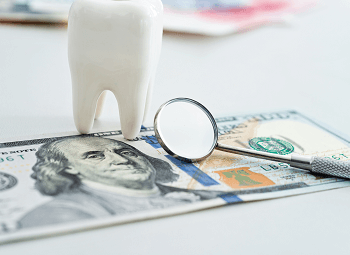Getting Dental Insurance as a Medicare Patient

Did you know that seeing a dentist regularly is one of the best things you can do for your overall health? Not only does regular dental care keep your teeth and mouth healthy, but it also is linked to better overall health and a better ability to manage chronic illnesses. That’s why you should make it a priority to see your dentist at least once per year.
Still, like all medical care, dental services cost money. However, not all health insurance plans provide dental coverage, and most people have to buy these benefits separately. Medicare patients are in the same boat.
The Medicare program covers dental and oral care in several different ways. However, you should always remember that Original Medicare alone will not cover your routine dental care at all. To receive these benefits, you will likely have to look elsewhere. Let’s take a closer look at how you can receive these benefits as a Medicare patient.
Original Medicare and Dental Benefits
Medicare is the U.S. government’s taxpayer-funded health insurance program. It generally ensures that seniors, people with disabilities and those with certain chronic illnesses can afford the health care they need. For more than 50 years, Medicare has been a part of the American health insurance marketplace.
Medicare’s standard coverage is called Original Medicare. It provides two types of benefits: Part A & Part B coverage. Like most major health insurance providers, Medicare does not cover routine dental care in the same way that it would other essential medical services.
Therefore, if you only have Original Medicare and visit a dentist for a cleaning or filling, then you cannot use this plan to pay for your care. You will have to pay for all your care costs on your own.
However, in limited scenarios, Medicare might pay for certain critical or emergency dental care in a hospital setting.
For example, if you have suffered a serious injury that has affected your teeth, jaw or mouth, then Medicare Part A hospital benefits might pay to the requisite injuries. On the other hand, if you have to be admitted to a hospital because of a complicated dental procedure, then the hospitalization itself might have coverage under Medicare. The actual procedure itself, however, might not.
All the same, you might still be able to get dental coverage from another type of Medicare benefit called a Medicare Advantage plan.
Dental Coverage Under Medicare Advantage
The Medicare program has changed significantly since it was created more than 50 years ago. Besides Original Medicare, which is taxpayer-funded, there are a variety of Medicare plans offered by private insurance companies. One of these is the Medicare Advantage plan, also called Medicare Part C.
You buy a Medicare Advantage plan from a private insurance company. However, to get this plan, you must enroll in Original Medicare, first, and you remain in the Original Medicare program even though you have an Advantage plan.
When you buy a Medicare Advantage plan, you receive all the same benefits of Original Medicare and the plan must meet certain government-approved standards. Advantage plans are different in that they will also contain expanded benefits beyond Part A & Part B coverage. One of these might be a dental insurance benefit.
If your Medicare Advantage plan offers dental coverage, then you can file against this plan if you need to visit a dentist for routine care. Under these plans, covered services might include:
- Teeth cleanings
- Extractions
- Fillings
- X-rays
Certain other more routine services and treatments might also be covered. Therefore, by having a Medicare Advantage plan, you’ll be able to receive necessary dental care both at your convenience and affordably. Therefore, you’ll go a long way towards stabilizing your overall health.
However, not all Medicare Advantage plans include dental benefits and not all Medicare recipients can qualify for a Medicare Advantage plan in the first place. Additionally, dental benefits on Advantage plans will vary from policy to policy (since these are managed by private insurers) and the costs you pay for these services can differ. Therefore, you might find that a Medicare Advantage dental benefit is not the solution for you.
Private Dental Insurance Options
Even after you enroll in Medicare, you are still able to buy dental insurance from a private insurance company. There are numerous dental insurance providers out there. Their plan offerings can provide everything from basic dental coverage for routine care to more expansive benefits that will cover specialty dental services.
Of course, all private dental plans will vary both in the care that they cover and the networks of physicians that accept the plan. They will also have different deductibles, copayments and coinsurance requirements that the policyholder will have to pay. Furthermore, you will have to pay a premium for this plan, which can vary from insurer to insurer.
Still, most private dental plans are extremely affordable, and by working with your insurance agent, you can determine the best way to get one of these plans alongside your Medicare. In the end, with both Medicare and dental insurance, you can see the care providers you need to see at prices you can afford.
